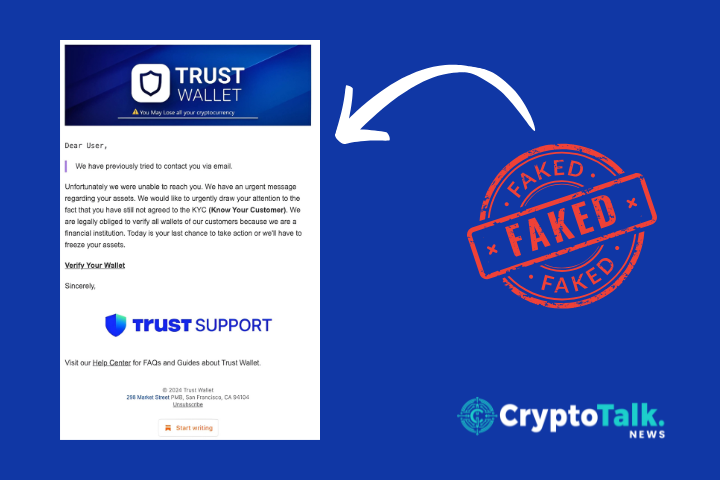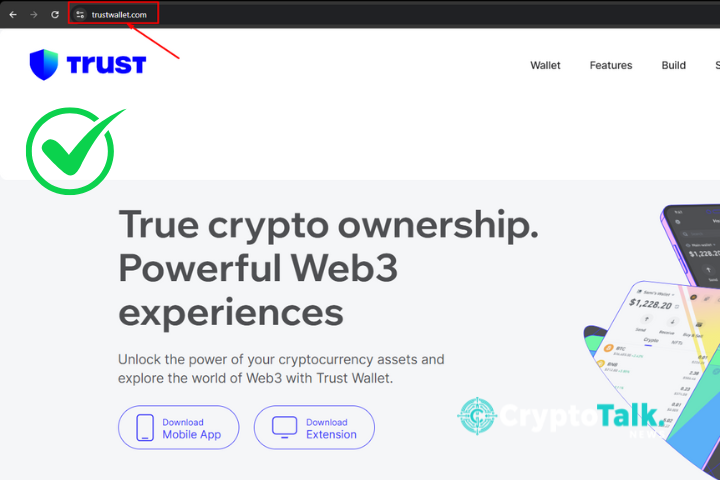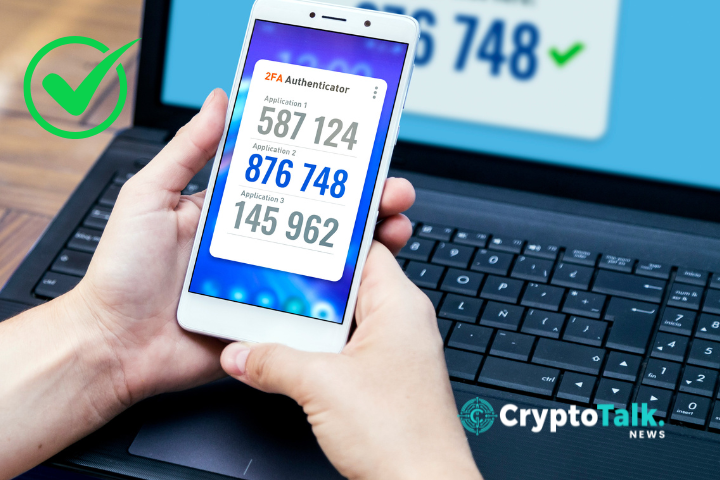Cryptocurrency wallets like Trust Wallet have become essential tools for managing digital assets. However, the rising popularity of crypto has also attracted scammers. Terms like “Trust Wallet scam,” “Trust Wallet KYC scam,” and “Trust Wallet airdrop scam” are increasingly surfacing in user complaints. This article explores these scams, provides data on their prevalence, and equips you with actionable tips to secure your digital wealth.
Is Trust Wallet a Scam or Real?
Trust Wallet is a legitimate cryptocurrency wallet that boasts over 60 million downloads globally. It supports various blockchains and allows users to store, send, and receive digital assets securely. As of 2023, Trust Wallet has earned a 4.6-star rating on the Google Play Store and Apple App Store combined.
However, scammers exploit its name to defraud users. Phishing sites, fake airdrops, and social engineering tactics are common methods. Despite these scams, Trust Wallet itself is not a scam but rather a secure tool compromised by bad actors.
Can You Get Scammed on Trust Wallet?
Unfortunately, yes. While Trust Wallet has robust security features, users can fall victim to scams due to:
- Phishing Attacks: Scammers create fake websites that look like Trust Wallet and trick users into entering their private keys. This lets the attackers steal the user’s funds.
- KYC Scams: Fraudsters pretend to be Trust Wallet support and ask for personal information, claiming it’s for verification. This lets them steal the user’s wallet and funds.
- Fake Airdrops: Scammers offer free tokens in exchange for private keys or seed phrases. If users give this information, their wallets are stolen.
Case Study:
A 2024 report by CipherTrace revealed that phishing attacks in the cryptocurrency sector increased by 47%, with wallet users being primary targets. Trust Wallet users reported losing up to $50 million collectively to such schemes.

Trust Wallet KYC Scam: How It Works
The Trust Wallet KYC scam often begins with a fraudulent email or message claiming your wallet requires verification to comply with regulations. Scammers:
- Initial Contact by Scammers
The scam begins with a fraudulent email, text, or social media message, claiming to be from Trust Wallet. Scammers assert that KYC (Know Your Customer) verification is required to comply with regulatory mandates or to prevent wallet suspension. These messages are designed to alarm users into quick action. - Requests for Sensitive Information
Victims are urged to provide sensitive details, such as their wallet’s seed phrases or private keys. These requests may appear genuine, accompanied by fake urgency or threats of account closure. - Fake Websites
Users are often directed to counterfeit websites that mimic Trust Wallet’s official platform. These sites prompt users to input their credentials, which are then collected by scammers to access and drain the victim’s wallet.
Warning Signs of the Trust Wallet KYC Scam
The Trust Wallet KYC scam often begins with false claims that KYC (Know Your Customer) verification is mandatory for wallet use. However, Trust Wallet does not require KYC for basic functions like sending or receiving cryptocurrency. Any message stating otherwise is fraudulent. Another major red flag is a request for sensitive information such as private keys or seed phrases. These are critical security details that should never be shared under any circumstances, as doing so can result in the loss of your funds.
Unsolicited messages or emails, especially those containing links to unknown websites, are also common signs of this scam. Scammers often create fake websites mimicking Trust Wallet to trick users into entering their credentials. To protect yourself, remain cautious of unexpected communications and always verify their authenticity through official channels.
How to Protect Yourself from the Trust Wallet KYC Scam

To avoid falling victim to the Trust Wallet KYC scam, verify all communications claiming to be from Trust Wallet through their official support channels. Never click on links in unsolicited messages or emails; instead, access your wallet only through the official app or website.

Keep your wallet information secure by storing private keys and seed phrases offline and never sharing them with anyone. Enable Trust Wallet’s security features, such as two-factor authentication (2FA) or biometric verification, for added protection.
If you receive suspicious messages, report them to Trust Wallet and relevant authorities. By staying informed, cautious, and proactive, you can protect your assets and contribute to reducing cryptocurrency scams. Always remember: Trust Wallet does not require KYC or ask for private keys.
Trust Wallet Airdrop Scam: A Growing Concern
Airdrops are promotional campaigns that distribute free tokens to users. While legitimate airdrops exist, fake ones are rampant. In a Trust Wallet airdrop scam, scammers:
- Announce fake airdrops on social media or through emails.
- Require users to connect their wallet to malicious websites.
- Drain funds from connected wallets.
According to Chainalysis, crypto scams involving fake airdrops accounted for 14% of all crypto fraud in 2024, causing losses of over $260 million.
Is Trust Wallet Scam? Clearing the Air
It’s essential to differentiate between the wallet itself and the scams using its name. Trust Wallet is not a scam, but its decentralized nature leaves users responsible for safeguarding their assets.
Key Points:
- Trust Wallet does not control user funds or have access to private keys.
- Scammers exploit its reputation to trick users.
How to Protect Yourself from a Trust Wallet Scam
In January 2023, a user avoided a Trust Wallet scam by recognizing a phishing email’s poor grammar and verifying the sender’s email address. Here are practical tips to avoid falling victim:
- Never Share Your Seed Phrase: Your seed phrase is the master key to your wallet. Never share it with anyone.
- Verify URLs: Always ensure you are visiting the official Trust Wallet website or app.
- Avoid Suspicious Links: Ignore unsolicited links claiming to offer rewards or urgent updates.
- Enable Two-Factor Authentication (2FA): Use 2FA on any linked accounts to enhance security.
- Educate Yourself: Familiarize yourself with common crypto scams to stay one step ahead.
Notable Scams in the Cryptocurrency Ecosystem
Trust Wallet scams are part of a broader trend in cryptocurrency fraud. Other common scams include:
- Rug Pulls: Fraudulent projects that vanish after collecting investments.
- Ponzi Schemes: Fake platforms promising high returns.
- Impersonation Scams: Fraudsters posing as customer support or influencers.
Global Impact:
A report by the Federal Trade Commission (FTC) highlighted that cryptocurrency scams caused losses exceeding $1.69 billion in 2024, with wallet-related scams contributing significantly.
How Trust Wallet is Fighting Scams
Trust Wallet is taking proactive steps to combat scams and protect its users. Through education initiatives, they provide valuable resources to help users understand and implement best security practices, ensuring they are aware of potential threats. Additionally, Trust Wallet regularly issues community alerts, warning users about ongoing scams and advising them on how to avoid falling victim.
The app also receives frequent security updates that enhance its protection features, making it more difficult for scammers to exploit vulnerabilities and ensuring a safer experience for all users.
What to Do If You’ve Been Scammed
If you fall victim to a Trust Wallet scam, it’s crucial to act quickly. Transfer remaining funds to a new wallet as soon as possible to prevent further losses. Next, report the incident to Trust Wallet’s support team and any relevant authorities so they can investigate the scam and take appropriate action. Additionally, warn others by sharing your experience with the community, helping others stay vigilant and avoid similar attacks.
To protect yourself in the future, consider using anti-phishing tools like MetaMask’s phishing detector, which can help identify and block malicious websites. Although rare, some crypto recovery services specialize in attempting to recover stolen assets, though success is not guaranteed.
Conclusion
The “Trust Wallet scam” is a real and evolving threat in the cryptocurrency space. While Trust Wallet itself remains a secure and legitimate platform, users must adopt proactive measures to protect their assets. By understanding how scams like the Trust Wallet KYC scam and airdrop fraud operate, you can safeguard your investments and navigate the crypto world with confidence.
Stay informed, stay secure, and remember: your wallet’s safety starts with you.
Author
-

CryptoTalk.News is your go-to platform for the latest cryptocurrency and blockchain news. We deliver breaking updates, market analysis, and expert insights on Bitcoin, Ethereum, NFTs, DeFi, and more. Our mission is to educate and empower crypto enthusiasts, traders, and investors worldwide. Stay informed and navigate the crypto world with confidence.
View all posts


























